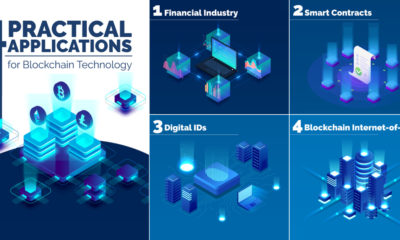By Dr. Federico Ast. Ast is currently the Co-Founder and CEO of Kleros, a blockchain dispute resolution layer for virtually.
A majority of the world’s economic activity now operates completely online. The Internet has surpassed regular jurisdictional avenues of governance and commerce channels. What’s more, the markets that were once regulated by bureaucratic, old-world systems are becoming increasingly more complex.
All of this digital activity is driving the need for new common law solutions. The infrastructure that exists today is not prepared to efficiently handle the billions of transactions and international trades that the new age of commerce has ushered in. Thankfully, there is a way for the world to create an efficient mode of control – and that’s with blockchain technology.
To understand how blockchain technology can disrupt and establish a common law on the Internet, look no further than TCP/IP and how this once nascent and obscure technology in the 1970s became the foundation of the Internet and e-commerce today.
Precursor of the digital revolution
First introduced in 1972, TCP/IP was used as the base technology behind e-mail by researchers in the U.S Department of Defense on ARPAnet. As many might know, this was also the precursor to what we know as the Internet today. TCP/IP eliminated the need for a private infrastructure line to communicate and the need for costly private lines, which were often controlled with 19th-century industrial management mindsets.
What’s more, the technology created an open and shared network without the need for a central authority. In a sense, this became the law of the land for global World Wide Web communication.
All of this also paved the way for commercialized browsers and programming languages. TCP/IP opened the doors for information technology companies to create and dominate within an entirely new digital economy. For example, news organizations began to see that they could move their businesses online, and companies like Amazon created the very concept of e-commerce.
Fast forward to nearly 30 years later, and the initial TCP/IP technology is now an invisible hand in the global digital economy. The majority of companies have established a foothold online in some way and would not exist if it weren’t for the technological advances of the 1970s. But if TCP/IP ripped up the road, then blockchain is now going to pave the way.
The new architecture of law
Every organization keeps an ongoing record of their transactions. However, these records are often segmented and kept private. Reconciling these transactions is also time-consuming and at the root of many organizations’ problems with efficiency. What happens behind closed doors can also be tampered with. Closed databases are privy to manipulation and do not foster an environment of transparency.
Source/More: Predicting the Emergence of Common Law Through Blockchain – Nasdaq.com












